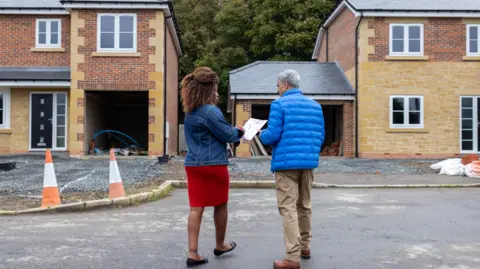In a significant development for the housing sector in the UK, major housebuilders have pledged to pay £100 million towards affordable housing efforts. This move aims to circumvent a regulatory decision regarding possible breaches of competition law. The agreement involves seven prominent firms in the industry, which have collectively decided to contribute this substantial sum in a bid to address concerns raised by the Competition and Markets Authority (CMA).
The companies involved in this initiative include some of the biggest names in housebuilding, namely Barratt Developments, Redrow, Bellway, The Berkeley Group, Bloor Homes Limited, Persimmon, Taylor Wimpey, and Vistry Group. Each of these organizations has also committed to refraining from sharing commercially sensitive information, especially concerning house pricing and incentives offered to potential buyers. Such incentives may include upgrades like modern kitchens or contributions towards stamp duty, which are pivotal in attracting buyers.
The CMA initiated an investigation in the previous year, scrutinizing the conduct of these housebuilders. The focus was primarily on whether these firms had been inappropriately exchanging critical information regarding pricing strategies and buyer incentives. By agreeing to this financial settlement, the housebuilders are essentially seeking to avoid a protracted legal battle, which could ultimately conclude in the confirmation of wrongful conduct on their part.
From the CMA’s perspective, accepting this financial contribution would negate the need for them to determine if the housebuilders indeed breached any competition laws. It is crucial to note that while the firms have agreed to pay this significant amount, they do not admit to any wrongdoing. The CMA has emphasized that no liability has been claimed in connection with the ongoing investigation, underscoring the complexities of such regulatory disputes.
Sarah Cardell, the CMA Chief Executive, articulated the focus of the inquiry during an interview with BBC Radio 4. She highlighted that the organization’s priority lies in ensuring competitive practices within the housing market moving forward, rather than solely determining the legality of past actions. The assurance indicates a strategic shift towards enhancing market dynamics rather than exclusively penalizing potential past infractions.
Cardell further addressed concerns that some individuals or local authorities may have overpaid for homes due to the possible communication of sensitive data between housing firms. She expressed that securing a commitment to this £100 million payment from the builders would help provide essential resources for affordable housing, stating that this would aid those most in need. The aim is not only to address immediate housing issues but also to facilitate the introduction of hundreds of additional affordable homes to the UK market promptly. This resolution, according to Cardell, is more beneficial than dragging through an extensive and complicated investigative process.
In conclusion, the decision by Britain’s largest housebuilders to contribute £100 million towards affordable housing represents a proactive approach to addressing regulatory scrutiny. By committing to avoid sharing sensitive competitive information and investing in housing solutions, these companies are not only attempting to resolve current challenges but also working towards fostering a more competitive environment in the future. The resolution has been welcomed as a timely intervention given the pressing need for affordable housing within the UK, underscoring the delicate balance between business practices and regulatory compliance.










